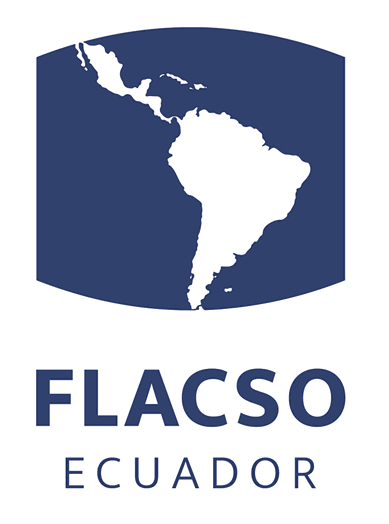Por favor, use este identificador para citar o enlazar este ítem:
http://hdl.handle.net/10469/13991Registro completo de metadatos
| Campo DC | Valor | Lengua/Idioma |
|---|---|---|
| dc.creator | Revelo Arellano, Michael Daniel | - |
| dc.date | 2018-06 | - |
| dc.date.accessioned | 2018-09-27T19:56:33Z | - |
| dc.date.available | 2018-09-27T19:56:33Z | - |
| dc.identifier.citation | Revelo Arellano, Michael Daniel. 2018. Securitización como supervivencia, securitización como actos del habla: crítica a la Escuela de Copenhague o Securitization as Survival, Securitization as a Speech Act: A Critic to the Copenhagen School. Urvio. Revista Latinoamericana de Estudios de Seguridad, 22: 58-69. | es_ES |
| dc.identifier.issn | 1390-4299 en línea | - |
| dc.identifier.issn | 1390-3691 | - |
| dc.identifier.uri | http://hdl.handle.net/10469/13991 | - |
| dc.description | El presente trabajo evalúa los postulados y la aplicación de la teoría de securitización (TS) de la Escuela de Copenhague (Wæver, Buzan y de Wilde) para indagar sobre aquellos cuestionamientos que posicionan a esta como una teoría conservadora, dentro de los estudios de seguridad, por adoptar y reforzar principios propios de los enfoques tradicionales. Con dicho fin, se examina cómo afecta a la TS adoptar las concepciones de la seguridad como supervivencia y la producción de la seguridad a través de procesos intersubjetivos de construcción de amenazas, bajo la lógica de la teoría de los actos del habla y los roles y funciones determinados para agentes securitizadores y audiencias que privilegian las experiencias de un grupo, en detrimento de otros. Con base en el análisis de esos postulados, en este artículo se critica la metodología propuesta por dicha escuela, que restringe el cambio del objeto de referencia y la ampliación de la agenda de seguridad. | es_ES |
| dc.description | The present paper addresses how the theoretical framework of the securitisation theory, conceived by the Copenhagen School, embraces unique features of the traditional security studies. Its central focus is the assessment of the conceptions of security as survival embedded in the logic of the speech act theory, and the characterisation of the role endows to the securitising agents and the audience. By analysing those, this work criticises the methodology proposed by the Copenhagen School that restrains the deepening of the referent object and the broadening of the security agenda. | es_ES |
| dc.format | p. 58-69 | es_ES |
| dc.language | spa | es_ES |
| dc.publisher | Quito, Ecuador : Flacso Ecuador : Relasedor | es_ES |
| dc.rights | openAccess | es_ES |
| dc.rights | Atribución-NoComercial-SinDerivadas 3.0 Ecuador | * |
| dc.rights.uri | http://creativecommons.org/licenses/by-nc-nd/3.0/ec/ | * |
| dc.subject | AGENTES SECURITIZADORES | es_ES |
| dc.subject | AUDIENCIA | es_ES |
| dc.subject | ESCUELA DE COPENHAGUE | es_ES |
| dc.subject | SEGURIDAD COMO SUPERVIVENCIA | es_ES |
| dc.subject | SEGURIDAD | es_ES |
| dc.subject | TEORÍA DE SECURITIZACIÓN | es_ES |
| dc.title | Securitización como supervivencia, securitización como actos del habla: crítica a la Escuela de Copenhague | es_ES |
| dc.title.alternative | Securitization as Survival, Securitization as a Speech Act: A Critic to the Copenhagen School | es_ES |
| dc.type | article | es_ES |
| dc.tipo.spa | Artículo | es_ES |
| Aparece en las colecciones: | Revista Urvio No. 22, jun. 2018 | |
Archivos en este ítem:
| Archivo | Descripción | Tamaño | Formato | |
|---|---|---|---|---|
| RFLACSO-04-Revelo.pdf | Artículo - revista | 981,96 kB | Adobe PDF |  Visualizar/Abrir |
Este ítem está sujeto a una licencia Attribution NonComercial ShareAlike (CC BY-NC-SA 4.0)
Licencia Creative Commons



